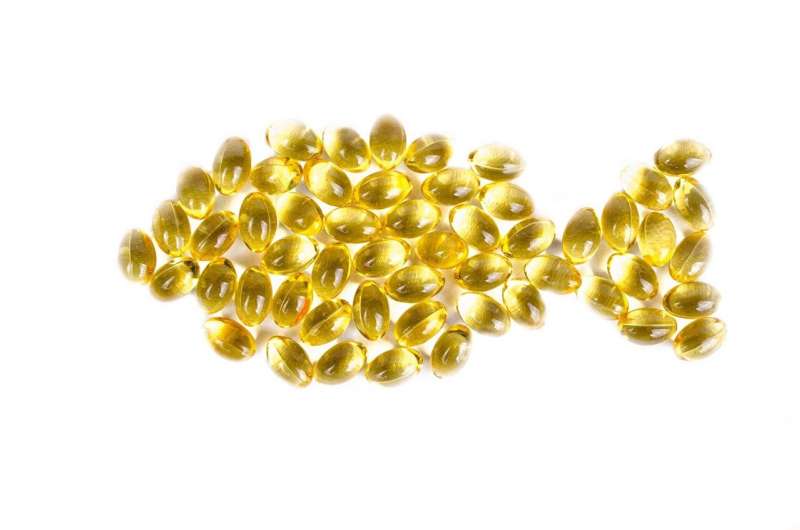Many consumers buying over-the-counter omega-3 fatty acid supplements may be getting rancid pills, according to a new study published Sept. 7 by researchers at the George Washington University. Derived from plants (algae) as well as seafood (fish, krill, etc.) , omega-3 supplements—sometimes labeled as fish oil—are often taken because of research that suggests they may provide health benefits.
Rancidity is measured by the amount of oxidation of the oil in the supplement. As supplements become more oxidized, the nutritional benefits delivered to the consumer are reduced.
“Our study suggests many of these supplements are not fresh—and thus may not provide a potential health benefit,” says Leigh A. Frame, associate professor of clinical research & leadership at the GW School of Medicine & Health Sciences and senior author of the study. “The findings also suggest consumers are not getting what they paid for.”
The article, “A Multi-Year Rancidity Analysis of 72 Marine and Microalgal Oil Omega-3 Supplements,” was published in the Journal of Dietary Supplements.
Higher levels of omega-3 have been associated with a wide range of benefits to multiple organs, including the brain and eyes, but the most common reason for its popularity with consumers is to help the cardiovascular system.
The researchers conducted six years of tests on 72 of the most popular brands of omega-3 supplements, using the recommended rancidity limits that are voluntarily set by GOED, a global trade group that represents omega-3 manufacturers.
The researchers found a total of 45% of flavored and unflavored supplements tested positive for rancidity, with 32% of flavored supplements testing positive and 13% of unflavored pills. However, added flavoring can mask the rancidity of supplements. While the oxidation is present in the flavored supplements, indicating there is a positive level of rancidity, Frame says the amount of oxidation isn’t known because of the flavoring compounds themselves.
“Flavoring is potentially masking the freshness of omega-3 supplements in two ways,” Jacob Hands, lead author of the study and medical student at GW School of Medicine and Health Sciences. If fish oil supplements are fresh, they won’t have a fishy taste or smell, he explains. “Flavoring can mask those aspects but also makes it difficult for researchers to determine the level of oxidation and the quality of the supplement.”
While there are third party companies such as ConsumerLab.com and U.S. Pharmacopeia who test vitamins and supplements to verify a label’s purity of its substances, even brands that are tested cannot be guaranteed of freshness, Frame explains.
“The freshness of these supplements can be impacted by many different factors, including where they are stored and how long before they reach the consumer,” she says. “It’s important for consumers to know what they are buying and how fresh the product is. Right now, because the Food and Drug Administration regulates supplements like foods instead of drugs, buyers have no guarantee they are getting the health benefits they are paying for.”
Both Frame and Hands suggest exercising caution with flavored fish oil supplements at this point due to the uncertainty of how the flavoring may affect their freshness and, thus, any potential health benefits.
More information:
Jacob M. Hands et al, A Multi-Year Rancidity Analysis of 72 Marine and Microalgal Oil Omega-3 Supplements, Journal of Dietary Supplements (2023). DOI: 10.1080/19390211.2023.2252064
Citation:
Tests find many popular omega 3 supplements are rancid (2023, September 18)
retrieved 18 September 2023
from https://medicalxpress.com/news/2023-09-popular-omega-supplements-rancid.html
This document is subject to copyright. Apart from any fair dealing for the purpose of private study or research, no
part may be reproduced without the written permission. The content is provided for information purposes only.


